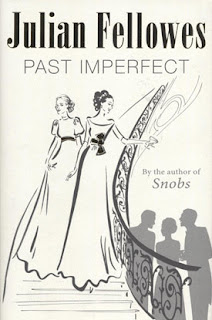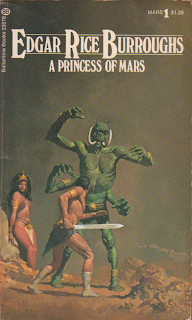 You are in a bookstore, waiting for your dear friend who's stuck in traffic and has no way of knowing what time he'll get there. You wander around aimlessly until you reach that section of the bookstore you least explore -- the science fiction section. You scan the first few novels, the ones with authors whose surnames start with A.
You are in a bookstore, waiting for your dear friend who's stuck in traffic and has no way of knowing what time he'll get there. You wander around aimlessly until you reach that section of the bookstore you least explore -- the science fiction section. You scan the first few novels, the ones with authors whose surnames start with A.You reach for that Asimov, temporarily attracted to that bright orange color. You read that it's Foundation, one of the author's seminal novels (probably one of the seminal novels in the whole SF genre). You turn to page 1. You see your friend has finally arrived. You look at the book in your hand. You are surprised that you're on page 30. You are hooked. You see your friend heading to the register, buying that book for you. You smile. You get the validation that patience, indeed, is a virtue.
You get home at the end of the day anxious to finish the book. You are unfazed by esoteric concepts such as psychohistory, polymath, and the Encyclopedia Galactica. You don't mind that sections of the novel appear dated, for they are, in a way, charming and lend a feeling that what you are holding is an SF classic. You finish Foundation in the middle of the night. You are blown away.
You quickly recall what the novel is about. You know that it has to do with a group of scientists being exiled to a faraway part of the universe to prevent the collapse of humankind. You think that this isn't too farfetched at all, given the technology. You Google. You find out that you do have to read the rest of the Foundation novels to appreciate the storyline fully.
You talk about the first Foundation novel with some of your friends from the book club. You hear the same thing. You just need to get your hands on the rest of Asimov's brilliant creation, or at least read the trilogy (Foundation, Foundation and Empire, and Second Foundation). You come up with a plan on your book retail activities, somehow channeling the foreshadowing idea in the gripping first novel.
You blog about your experience, of course. You write an entry with each sentence beginning with 'you'. You pray that your readers won't be turned off by the over-usage of the second person pronoun.
You read this book if:
- You love classic SF.
- You want to know what the fuss is all about and why this book has been continuously in print since 1951.
- You're a sucker for anything Asimov.







